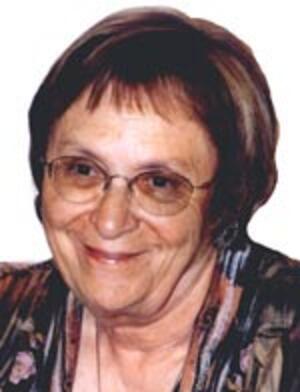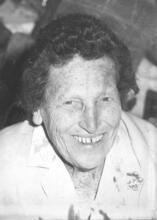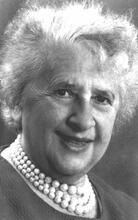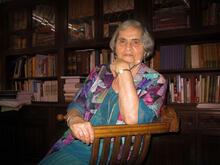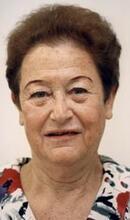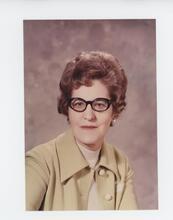Yehudith Birk
Biochemist Yehudith Birk, from the Hebrew University Faculty of Agriculture in Rehovot, won the 1998 Israel Prize for agricultural research. Birk had an enormous impact on the perception of foods such as soy and hummus as important vegetarian sources of protein. One of her greatest achievements is the isolating and investigating of the protease inhibitor, known today as BBI (the Bowman-Birk inhibitor), which has the abilities to protect plants against insects and to prevent cancer in human. During her scientific career, Birk published more than 150 articles, as well as the book Plant Protease Inhibitors: Significance in Nutrition, Plant Protection, Cancer Prevention and Genetic Engineering.
A 1998 Israel Prize laureate for agricultural research, Professor Yehudith Birk of the Hebrew University Faculty of Agriculture in Rehovot was an internationally renowned biochemist. Her investigations of legume seed proteins and proteinase inhibitors promoted our understanding of the ways plants are protected from insects and of the mechanisms that enable the human body to prevent motility of immune system cells and the growth of cancer cells. Birk's scientific studies had a revolutionary impact on the perception of foods such as soy and hummus as important vegetarian sources of protein, which inhibit cancers. Her research has given rise to treatments for cancer, multiple sclerosis, and HIV.
Family and Education
Yehudith Birk was born on September 30, 1926, in Grajewo, Poland, the only child of Frida Gitl (1895–1974, née Borowitz) and Baruch Yizhak Gershtanski (1890–1950). Theirs was an ardent Zionist family. Yehudith’s mother was an accountant yet also founded the town’s Tarbut kindergarten and Hebrew day school, while her father was a merchant. In 1935 the family immigrated to Tel Aviv and young Yehudith attended the elementary school for workers’ children.
After completing her education at Ge’ula commerce high school and spending one year at A voluntary collective community, mainly agricultural, in which there is no private wealth and which is responsible for all the needs of its members and their families.Kibbutz Alonim, Yehudith started her master’s degree at the Hebrew University of Jerusalem in 1945, majoring in biochemistry and microbiology. When the Israeli War of Independence broke out, she married physicist Meir Birk (1924–2000), the son of a couple who were the landlords of her parents’ rented apartment and her boyfriend of several years. They had two sons: Yitzhak, born in 1953 (as of 2021 a professor in the Faculty of Electrical Engineering of Technion—Israel Institute of Technology, Haifa), and Ohad-Shmuel, born in 1957 (as of 2021 director of the Genetics Institute at Soroka Medical Center in Be’er Sheva).
IDF Science Corps and Academic Career
During the war years of 1948 and 1949, Birk set aside her academic studies to join the Israel Defense Forces. Serving at the rank of second lieutenant, she worked in the Scientific Corps unit (Hemed), which developed parachute flares, testing them during Israel Air Force night-flights off the Tel Aviv coast.
In December 1950, Birk completed her M.Sc. in biochemistry and microbiology. Encouraged by her husband, she continued for her doctorate in biochemistry at the Hebrew University Faculty of Agriculture in Rehovot. Birk studied soybeans under the tutelage of Professor Aharon Bondi, and earned her Ph.D. in biochemistry in 1954. During the years 1955-1956 she was a postdoctoral fellow at Rutgers University with Nobel Laureate Selman Waksman. Returning from New Jersey in 1956, Birk joined the Hebrew University Faculty of Agriculture. Promoted to senior lecturer in 1962 and to associate professor in 1966, Birk attained full professorship in 1970. Over the course of decades, she advised some one hundred master’s and doctoral students.
Scientific Achievements
One of Birk’s greatest achievements was the isolating and investigating of a protease inhibitor predominant in legume seeds, known today as the Bowman-Birk inhibitor (BBI—named jointly after her and Professor Donald Bowman, who first noted this inhibitor). BBI is a protease inhibitors archetype, utilized as a built-in agent for pest control as well as a cancer preventive agent. Another of Birk’s scientific milestones was the discovery and characterization of the ß-lipotropin (lipolytic hormone) in the hypophysis. This hormone functions as a liquefier of fats and serves to soothe pain.
Birk’s research on the chemistry, structure and biological activities of bio-active proteins, peptides, and accompanying compounds was published in more than 150 scientific articles and in chapters of several volumes. Her book, Plant Protease Inhibitors: Significance in Nutrition, Plant Protection, Cancer Prevention and Genetic Engineering, was published in 2003.
First Women Dean at the Hebrew University
Yehudith Birk founded the Food Science and Nutrition school at the Hebrew University Institute of Biochemistry and served as its founding director from 1972 to 1974. She was the first woman to become a dean at Hebrew University and held the position of dean of the Faulty of Agriculture from 1977 to 1980, and. Over the years she held visiting professor positions at several American universities (primarily in California), as well as at Lincoln University in New Zealand (1995).
In 1978 Birk was awarded the prestigious Rothschild Prize as well as the Mo’ezet Irgunei Nashim be-Yisrael medal in recognition of her remarkable achievements in research and teaching. From 1990 to 1995 she served as Pro-Rector of the Hebrew University. A member of the Israel Academy of Science and Humanities beginning in 1993, Birk was elected to be an active member of the European Academy of Sciences and Arts in 2004. As a professor emerita, she continued to hold numerous positions on a national level in the realms of the academy and research. She also played a significant role in shaping Israel’s infrastructure in higher education.
Yehudith Birk passed away on January 14, 2013, leaving behind her two sons and four grandchildren. Today, a street bears her name in Rehovot, not far away from the Hebrew University Faculty of Agriculture, where she conducted her research and taught generations of young students.
Selected Works by Yehudit Birk
“The Bowman‐Birk inhibitor. Trypsin‐ and chymotrypsin‐inhibitor from soybeans.” International Journal of Peptide and Protein Research 25, 2 (1985): 113-131. https://onlinelibrary.wiley.com/doi/abs/10.1111/j.1399-3011.1985.tb0215…
Plant Protease Inhibitors: Significance in Nutrition, Plant Protection, Cancer prevention and genetic engineering. New York: Springer, 2003.
Sharon, Nathan. Biological Chemistry in Israel. Jerusalem: the Israel Academy of Sciences and Humanities, 2000 (in Hebrew).
Wolfson, Adele J. “One hundred years of American Women in biochemistry.” Biochemistry and Molecular Biology Education. 34, 22 (2006): 75-77. https://doi.org/10.1002/bmb.2006.49403402075

